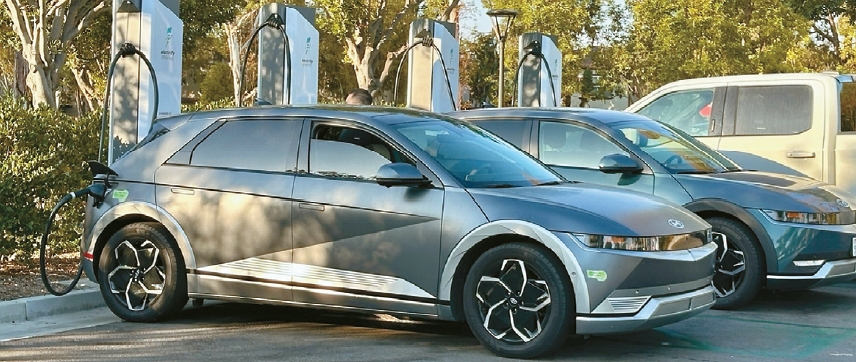Electric vehicles (EVs) are often seen as expensive upfront, but their lower fuel and maintenance costs, along with long battery warranties, make them an increasingly cost-effective option. With federal tax credits and dealership incentives set to expire soon, buyers can still take advantage of significant savings by carefully selecting from the most economical and reliable new and used EVs available today.

Among new models, the Tesla Model Y remains a top pick, offering up to 357 miles of range and an eight-year powertrain warranty, giving buyers confidence in long-term durability.
The Hyundai Ioniq 5 is also a strong contender, with 245 to 318 miles of range, 800-volt ultra-fast charging, and a battery warranty covering 10 years or 100,000 miles, making it ideal for long-term ownership.
The Chevrolet Equinox EV, a budget-friendly SUV with a range in the 300-mile class, delivers solid performance at a reasonable price point.
In the used EV market, the Tesla Model 3 is the most popular choice, with listings ranging from $12,000 to $25,000. Its robust powertrain, access to Tesla’s Supercharger network, and strong battery performance make it appealing to value-conscious drivers.
The Kia EV6, known for its long range and fast charging capabilities, typically sells between $18,000 and $25,000.
For larger families, the Rivian R1S offers three-row seating and 316 miles of range, priced in the $60,000 range, though buyers should account for its higher maintenance costs.
The Chevrolet Bolt EV, with many listings in the $10,000 range, remains a highly affordable entry point for EV ownership.
While some drivers worry about long-term expenses, experts note that EVs generally cost less to operate than gasoline-powered vehicles.
According to the Environmental Protection Agency (EPA), EV owners nationwide spend about $60 to $90 monthly on charging, far less than the fuel costs for comparable gas-powered cars.
For example, the Tesla Model Y achieves about 3.5 miles per kilowatt-hour (kWh), compared to the Toyota Highlander’s 23 miles per gallon.
As of January 25, the average electricity cost for EVs in California was $0.384 per kWh, while gasoline averaged $4.48 per gallon, based on data from the American Automobile Association (AAA). With a 10-mile commute, that translates to about $1.10 for the Model Y compared to $1.95 for the Highlander, or just 56% of the cost. Even with rising electricity rates, California’s annual fuel tax increases mean EVs are likely to retain their advantage.
EVs also save on upkeep. They don’t require oil changes, and regenerative braking reduces brake wear, lowering maintenance frequency and costs. While insurance remains 5% to 15% higher than for comparable gas vehicles, a report from MoneyGeek indicates this gap is narrowing, and fuel and maintenance savings often offset the difference, keeping total ownership costs competitive.
Experts advise buyers to consider not only the purchase price but also charging convenience, insurance, maintenance, battery warranties, and resale value before choosing an EV. With incentives still available but expiring soon, now is a rare opportunity to secure strong deals on both new and used electric vehicles.
BY HOONSIK WOO [woo.hoonsik@koreadaily.com]




